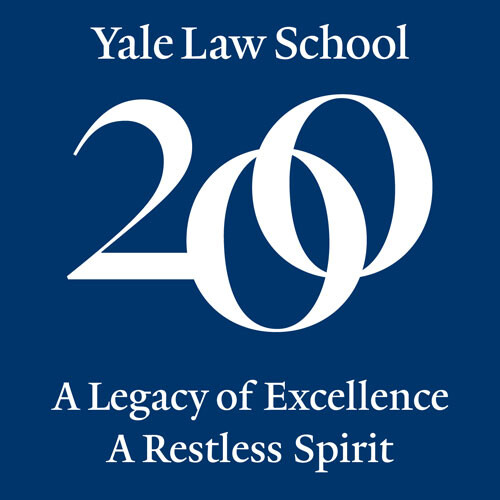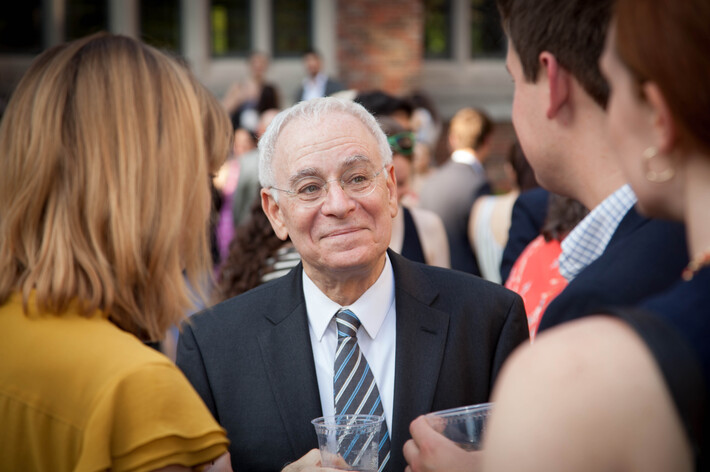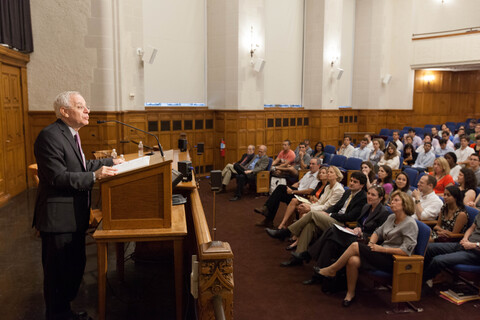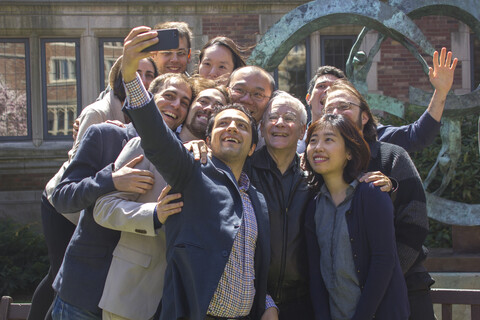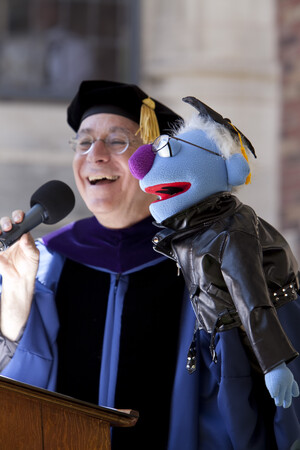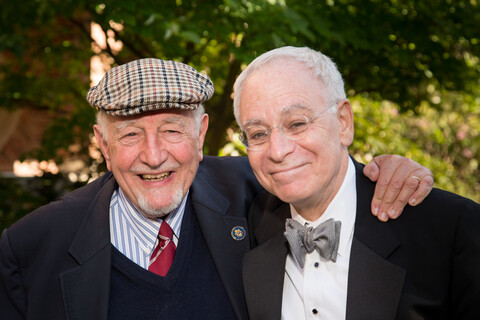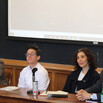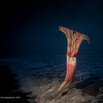When you reflect on the storied 200-year history of Yale Law School, what milestones or themes stand out to you?
At the outset of the 20th century, Yale Law School was merely a dot between two very large and very prestigious schools, Harvard and Columbia, which were both dominant in terms of size and legal pedagogy. The School began to acquire a distinctive voice in the second decade of the 20th century when it simultaneously featured the work of second-generation legal realists like Karl Llewellyn and that of legal theorists like Wesley Hohfeld. The Yale Law School came into its own, however, in the 1930s, when it became a seedbed for the New Deal and acquired a self-image that was distinct from both Harvard and Columbia.
At that time Yale fully embraced its own unique philosophy of education. It did not seek to compete with Harvard or Columbia in terms of size. It did not seek to turn out fungibly well-trained students who were all perfectly well-socialized professionals. It instead sought to encourage originality, to prize the eccentricity and idiosyncrasy that marked the unique talents of each student. Yale decided to remain small and close. It opted to create a community rather than a city. It chose to focus on the individual development of both faculty and students.
This focus was dramatically reinforced after World War II. The School introduced the small group, a great innovation in legal education. It did away with ordinary grades. It expanded into clinical and other forms of education. It strove to create forms of pedagogy that were cooperative rather than competitive.
Post addresses incoming students during Convocation in 2013.
How did the School evolve into a leader in legal education?
I entered law school in the fall of 1974. I had to choose between Harvard and Yale. At that time there were no rankings to guide one’s decision. I asked myself whether I wanted to go to a school that was large and that would stamp me out in a regular pattern of excellent professionalism, or whether I wanted to attend a school that would be responsive to my individual interests and that would bring out the best in me. I opted for the latter. Yale had the reputation of embracing and encouraging the originality of its community. Yale students and faculty were free to think outside the box, but at the same time they were encouraged to think together in a constructive community of engagement. To me these are the key reasons why Yale rapidly became the leader in American education. They made Yale irresistibly attractive to the most exceptional faculty and students.
Somewhat surprisingly, Yale’s location in New Haven also turned out to be an advantage. Cambridge and Boston offer multifarious attractions. It is thus hard for members of the Harvard Law School to maintain a sharp commitment to the school itself. The same is true with regard to Columbia and New York. But New Haven offers a relatively threadbare environment that directs the attention of faculty and students inward toward the School. The upshot is that Yale enjoys an intellectual intensity and vibrance that is virtually unmatched by any other legal institution of learning.
What stands out to you when reflecting on the major legal ideas that have come out of Yale Law School?
I shall focus on what I know best, which is American public law. The constitutional law faculty at Yale Law School have been outstanding for decades. It is striking that Yale faculty are not primarily focused on getting the law right. At other schools, faculty ask: “How should this case be decided?” But at Yale, faculty tend instead to ask: “How can law structure social processes so that our institutions can best function?”
In the past, our public law faculty, from Alexander Bickel to Robert Burt, persistently stressed the ways in which public law acquires its values and content in conversation with the political world outside law. Contemporary faculty like Bruce Ackerman, Jack Balkin, Paul Kahn, or Reva Siegel study how legal meaning emerges from public opinion, general culture, and government institutions. The focus of their scholarship is not on ascertaining the uniquely correct outcome to cases, but instead on understanding the processes by which law comes into being. That is a focus unique to Yale.
Describe your varied experience with the Law School, having gone from a student to a professor and then dean.
I was quite alienated from law when I arrived here as a student. I had been a Ph.D. candidate in American civilization at Harvard, and I had grown unhappy with graduate school. My father’s career was in decline, and I saw law as a way to earn income and support my family. I was lucky enough to come under the tutelage of Owen Fiss. If I'm anything in this field, it is because Owen took me in hand, trained me, and offered me opportunities. Although I loved my teachers and my fellow students, I did not as a student find a vocation in law.
I clerked after graduation and then became a litigator. I loved this work. But it also was not a vocation. So I returned to academics and took a job at Berkeley. It took several years, but eventually I discovered a voice and vocation outside of Yale. When I came back to Yale in 2003, it turned out that my work and my perspective were highly compatible with the work of the other public law scholars on the faculty. It was exhilarating to join a community of like-minded scholars.
When I returned to Yale, I found it to be a truly faculty-governed place. The faculty took seriously the responsibility of directing the School. This is most unusual in legal academia, which, like other units in American universities, is increasingly governed by administrators. At YLS, faculty uniquely conceptualized themselves as the core of the School. This sense of community responsibility and participation was precious and rare. When I became dean in 2009, I sought to preserve it. I persistently made myself the smallest person in the room, signifying that my role was to serve and facilitate the faculty's ability to govern itself. Of course I was required to provide guidance, resources, strategy, and administration. But my primary responsibility was to sustain the community that made the School so distinctive. We were a community of faculty and students.
A tight-knit community makes Yale unique from other law schools, according to Post.
How did you carry the School through the Great Recession?
When I took office in 2009 the endowment had shrunk 35%. We are a school that is endowment driven; tuition supplies only about a third of our budget. Kate Stith, as the interim Dean before me, had done yeoman’s work making budget cuts. But I had to make many more, and I had to do it in a way that did not inflict pain or restraint on the faculty. This was because at the time there was great faculty unrest and several faculty were contemplating leaving the School. It was enormously important to give faculty confidence that the Great Recession had not undermined normal School routines. Fundraising was of course hugely difficult. It was not an easy time.
I therefore put great emphasis on moral leadership, on the articulation of a convincing and attractive School mission. I decided on a three-pronged approach. First, I enhanced our public commitment to scholarship through dedicated hiring, and also by creating the first-ever Ph.D. in Law program, which has so far placed 17 students in tenured or tenure-track academic jobs, including named chairs in top-tier law schools. Second, I strengthened the School’s clinical offerings by building on and expanding the excellent foundations laid by my predecessor, Dean Koh. I gave the clinical program representation in the senior reaches of the School’s administration, and I enhanced the participation rights of clinical professors in the School’s governance.
Third, it was evident to me that younger faculty often thought of themselves as policy entrepreneurs. They wanted to create centers that would fuse theoretical insights with policy initiatives. Although there is no school of public policy at Yale, it became apparent to me that the Law School could fill that gap. By amplifying such an initiative, we could position YLS as the complete package, where students could acquire theoretical understandings of law; where they could learn to practice law; and where they could undertake to conceptualize and implement the policies characteristic of the administrative state. This stance would enable us to recruit and retain the most innovative and effective candidates on the market. It would enable us to offer our students a full spectrum of possible relationships to the law. And it would give current faculty the sense that they were in a school that was at the cutting edge of legal academia. The excitement of that vision could make even the constraints of the Great Recession fade into the background.
Yale Law School is now a place with a very large number of centers, a very large percentage of them stemming from the time when I was dean. Our students can now move easily between understanding the law, practicing the law, and changing the law.
Why was it important for you, as dean, to add Baker Hall to the footprint of the Law School?
Ever since we cannibalized the last law dorm room in the Sterling Law Building in the early 21st century, alumni have bemoaned the loss of onsite living facilities. Although I thought dorm rooms were important, to me a far more pressing issue was that we had literally run out of room in the Sterling Law Building. We had no more offices for faculty. We lacked sufficient classroom space to sustain our curriculum. We were without the space to support needed policy centers. The School had no place to lodge the administrators necessary for a modern law school.
Something had to give. Dean Koh had secured the commitment of Yale University to give us the Swing Dorm space across Grove Street once Yale had finished refurbishing its colleges, which would be in about 2016. It was plain, however, that President Levin was rethinking that commitment. I pressed hard when President Salovey took office, and to his eternal credit Salovey kept true to the University’s earlier promises. I suspect that in doing so the newly installed Salovey was forced to resist the urgent pleas of university planners.
The addition of Baker Hall has given Yale Law School room to grow and develop. We now not only have dorm rooms to spare, but we have the classrooms required to expand our curriculum. We can easily hold conferences and meetings. We have space for the policy centers that have proliferated throughout the School. We have faculty offices available should we need them. We added more than 100,000 square feet of new space.
